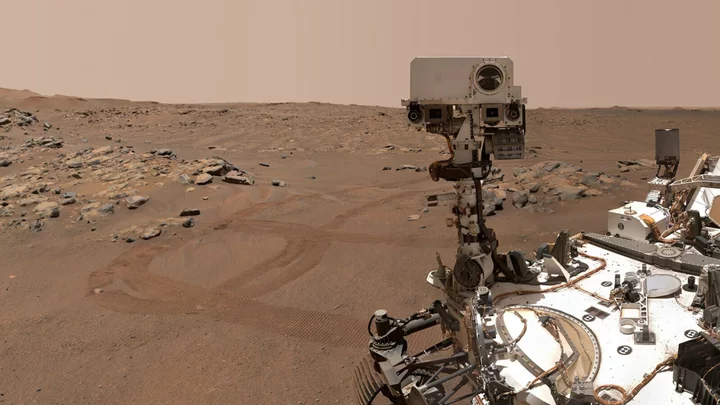While searching for the potential of past life on Mars, the car-sized NASA Perseverance rover spotted a towering Martian whirlwind.
Reaching around 1.2 miles (2 kilometers) high, the lower portion of this swirling vortex is visible in the footage below. Dust devils frequently spin across the Martian desert, though this robust dust devil is some 200 feet across.
SEE ALSO: NASA rover finds place where extraordinary events occurred on MarsThe vortex traveled at 12 mph, but is sped up in this 21-frame video. You can see it coming down the hill at the top of the shot:
The Perseverance rover is exploring the Jezero Crater on Mars, the site of a once roaring river delta that teemed with water. It's a bone dry world now — 1,000 times drier than Earth's driest desert — with no shortage of red dust for circulating air to drive up into the atmosphere.
The NASA robot is now approaching an area where planetary scientists suspect lake water once lapped against a shoreline some 3 billion years ago. Today, the minerals left on the ancient shore are "an excellent medium for preserving traces of ancient life if it existed," the space agency explained.
So get ready for more science: "The Mars 2020 scientists have been buzzing with excitement this past week as Perseverance makes its final approach towards a special rock unit that played a pivotal role in selecting Jezero as the landing site for exploration," NASA said.
Want more science and tech news delivered straight to your inbox? Sign up for Mashable's Light Speed newsletter today.
Mars is the only world that NASA is vigilantly exploring with rovers. But the space agency has plans to inspect other worlds that might harbor current conditions for life to thrive. These include enchanting moons like Saturn's Enceladus and Jupiter's Europa — a place where scientists recently found an element necessary for life (as we know it, that is).









